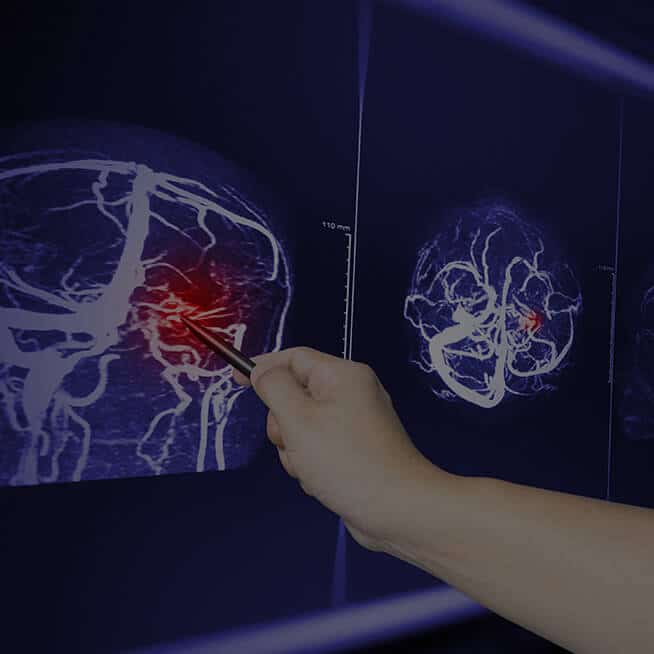
Brain injury cases (also called inner-head injuries) are some of the most severe accident injuries. They’re often associated with long term medical disability, unemployment, medical care, and expenses. If you or a loved one is dealing with spinal cord or brain trauma due to someone else’s negligence, you need a Tampa brain injury attorney on your side.
A good traumatic brain injury lawyer must be aggressive and passionate in fighting for your case. They should be prepared to fully investigate and file suit. The Tampa brain injury lawyers at KFB Law have the expertise to ensure that you or your loved one obtain justice for your pain.
You could receive compensation to cover:
- Medical expense
- Rehabilitation cost
- Lost wages
- Damage to personal property, supplies, and equipment
- The loss of enjoyment of life
- The cost of your emotional pain and suffering
Our attorneys will always fight to obtain the maximum legal and fair compensation for our clients’ injuries.
What is a traumatic brain or spinal cord injury?
Traumatic brain and spinal cord injuries are a result of external factors, like a concussion after being hit or getting into an accident. They’re common in athletes who play contact sports, survivors of severe car crashes, or workers who’ve been in a workplace accident.
These injuries result after being struck in the head or after a sudden jolt to the neck or spine. Some of the symptoms include:
- Headache
- Dizziness
- Nausea
- Depression
- Mood swings
- Blurred vision or loss of vision
- Confusion
- Loss Of motor function
- Change in behavior or sudden emotional problems
Rehabilitation for Traumatic Brain Injuries
Recovering from a traumatic brain injury can be a complex and lengthy journey, involving various stages of rehabilitation tailored to the individual’s specific needs. The goal of brain injury rehabilitation is to help patients regain as much independence and functionality as possible, improve their quality of life, and facilitate their reintegration into daily activities. Here is a high-level overview of the brain injury rehabilitation process:
1. Acute Care and Stabilization
The first stage of traumatic brain injury rehabilitation begins immediately after the injury, typically in a hospital’s intensive care unit (ICU). The primary focus is on stabilizing the patient’s medical condition, preventing further injury, and addressing any life-threatening issues. This stage may involve surgery, medication, and close monitoring of vital signs.
2. Inpatient Rehabilitation
Once the patient is medically stable, they may be transferred to an inpatient rehabilitation facility. Here, a multidisciplinary team of healthcare professionals, including neurologists, physiatrists, physical therapists, occupational therapists, speech-language pathologists, and psychologists, work together to create a personalized rehabilitation plan. Key components of inpatient rehabilitation include:
-
Physical Therapy: Focuses on improving mobility, strength, and coordination.
-
Occupational Therapy: Helps patients regain skills needed for daily living activities, such as dressing, eating, and personal hygiene.
-
Speech and Language Therapy: Addresses communication difficulties and cognitive impairments related to speech and language.
-
Neuropsychological Therapy: Assists with cognitive functions such as memory, attention, and problem-solving, and provides emotional and behavioral support.
3. Outpatient Rehabilitation
As patients progress, they may transition to outpatient rehabilitation, where they continue to receive therapy and support while living at home. Outpatient services often include continued physical, occupational, and speech therapy, as well as neuropsychological support. This stage allows patients to practice their skills in real-world settings and gradually reintegrate into their communities and workplaces.
4. Home-Based Rehabilitation
For some patients, home-based rehabilitation may be the most appropriate option. This involves therapists visiting the patient’s home to provide therapy and support. Home-based rehabilitation can be beneficial for individuals with severe mobility issues or those who prefer the comfort and familiarity of their own environment.
5. Community Reintegration
An essential part of the rehabilitation process is helping patients reintegrate into their communities. This may involve vocational therapy to assist with returning to work, social skills training to improve interactions with others, and support groups to provide emotional and psychological support. Community reintegration programs aim to help patients achieve a sense of normalcy and independence.
6. Long-Term Management
Brain injury rehabilitation is often an ongoing process that requires long-term management. Patients may need continued therapy, regular medical check-ups, and adjustments to their rehabilitation plans as they progress. Long-term management may also involve addressing any secondary complications, such as chronic pain or psychological issues, to ensure the best possible outcome for the patient.
7. Support for Families and Caregivers
Family members and caregivers play a crucial role in the rehabilitation process. Education and training are provided to help them understand the patient’s condition, manage daily care needs, and provide emotional support. Support groups and counseling services are also available to help families cope with the challenges of caring for a loved one with a brain injury.
Navigating the rehabilitation process after a brain injury can be overwhelming and costly for patients and their families. Enlisting the help of a Tampa brain injury lawyer can make a significant difference in securing the compensation and peace-of-mind that you deserve.
As necessary, our brain injury attorneys will enlist the best known brain and spinal cord injury experts in the fields of medicine and rehabilitation. They will ensure that you or your loved one is receiving the best treatment and that symptoms and trauma are being fully documented.
The Role of Tampa Brain Injury Lawyers in Your Recovery
Securing adequate compensation for a traumatic brain injury is a complex process that involves detailed documentation and expert testimony. At KFB Law, our Tampa brain injury lawyers are committed to providing comprehensive legal support to ensure you receive the full compensation you deserve. Here’s how we help:
-
Expert Consultation: We work with leading medical and rehabilitation experts to accurately document the extent of the injury and its long-term impacts. This includes consultations with neurologists, physiatrists, and other specialists who can provide detailed assessments of the patient’s condition.
-
Comprehensive Case Evaluation: Our attorneys conduct thorough investigations to gather all necessary evidence, including medical records, accident reports, and witness statements. We also employ accident reconstruction experts, economists, and life care planners to assess the financial impact of the injury.
-
Maximizing Compensation: We pursue compensation for all damages, including medical expenses, rehabilitation costs, lost wages, pain and suffering, and loss of enjoyment of life. We understand that the financial burden of a brain injury can be overwhelming, and we strive to ensure our clients receive the resources they need for their recovery.
-
Negotiating with Insurance Companies: Insurance companies often attempt to minimize payouts in brain injury cases. Our experienced lawyers negotiate aggressively on your behalf, ensuring that you are not shortchanged in settlement offers. If necessary, we are prepared to take your case to court to secure a fair outcome.
-
Ongoing Legal Support: Brain injury cases can be lengthy and complex. We provide ongoing support throughout the legal process, keeping you informed and involved every step of the way. Our goal is to alleviate the stress of legal proceedings, allowing you to focus on recovery.
Why Choose KFB Law?
Choosing the right legal representation is critical in a brain injury case. At KFB Law, our approach is client-centered, combining compassion with legal expertise. We understand the profound impact that a traumatic brain injury can have on individuals and their families, and we are dedicated to advocating for justice and fair compensation.
-
Experience and Expertise: Our attorneys have extensive experience handling brain injury cases and are well-versed in the complexities of medical and legal issues involved.
-
Client-Centered Approach: We prioritize the needs and well-being of our clients, offering personalized attention and support throughout the legal process.
-
Proven Track Record: Our firm has a history of successful outcomes in brain injury cases, securing significant settlements and verdicts for our clients.
-
Comprehensive Legal Services: From the initial consultation to the resolution of your case, we provide comprehensive legal services, including case investigation, expert consultation, and trial representation.
Get the Support You Need Today
If you or a loved one has suffered a traumatic brain injury due to someone else’s negligence, it is crucial to seek legal assistance as soon as possible. The Tampa brain injury lawyers at KFB Law are here to help you navigate the complexities of your case and secure the compensation you need for a full recovery. Book a free consultation today and let us help you get back to worrying about the little things in life, rather than the aftermath of an accident.
We would be glad to meet you in person at our Tampa, St. Petersburg, New Port Richey, Wesley Chapel, Plant City or Riverview offices or at any location that is convenient for you.




